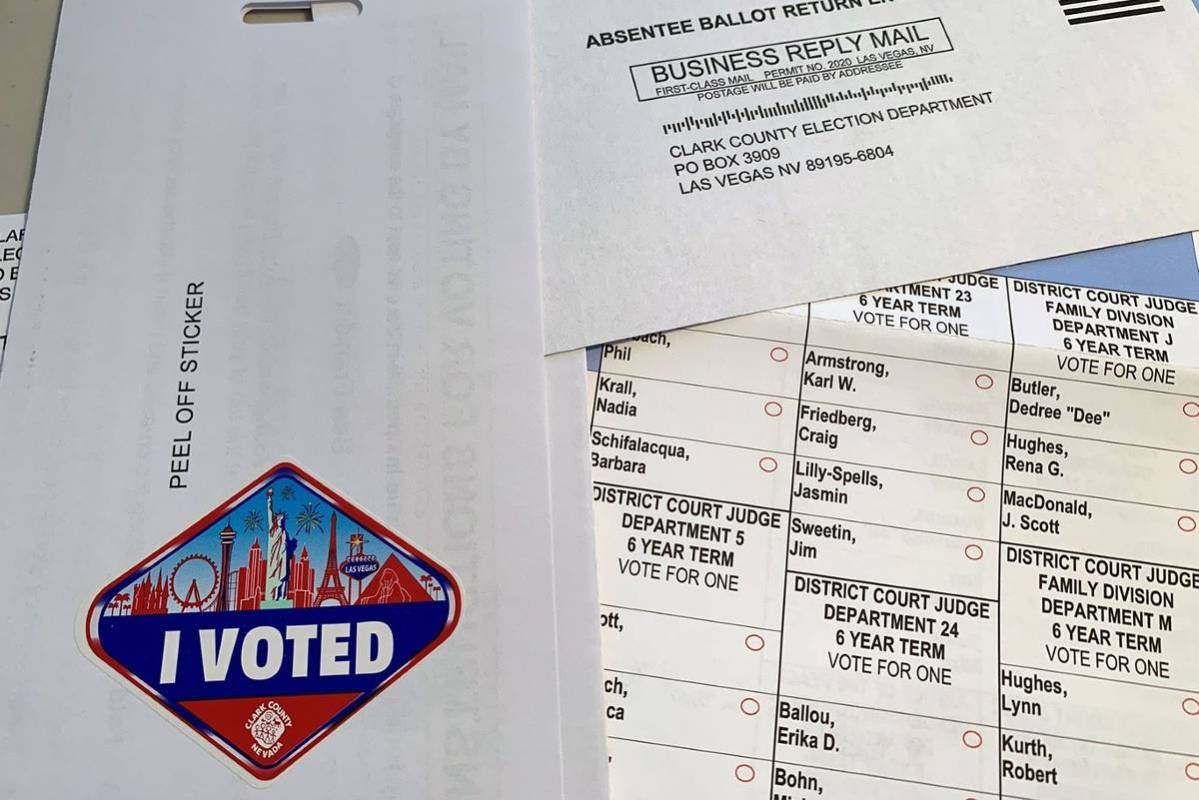
CARSON CITY — Nevada Democrats’ bids to make mail-in ballots permanent and position Nevada as the first presidential nominating state took major steps forward Wednesday, as lawmakers race toward the Legislature’s finale in less than a week.
The Assembly voted along party lines Wednesday to approve Assembly Bill 321, the Democrat-backed bill to make the expansion of universal mail-in voting permanent in Nevada and effectively codify the voting reforms made for the 2020 election amid the COVID-19 pandemic.
Lawmakers also voted 30-11 to pass Assembly Bill 126, which would do away with Nevada’s caucus system that has been used to determine each major party’s presidential nominee in the state since 1981.
Republicans in Nevada and across the U.S. have railed against expanded mail-in voting, citing unsubstantiated claims that it led to widespread voter fraud last year. Those claims have been refuted by Nevada’s Republican Secretary of State Barbara Cegavske, who has said no evidence of widespread fraud has been found statewide.
“Whether it was one fraudulent vote or a thousand, it does not matter if the trust in the system has been severely questioned,” Assembly Minority Leader Robin Titus, R-Wellington, said on the floor before the vote. “And I am concerned that this bill just furthers that distrust of the system.”
Frierson noted Wednesday after the vote that the bill has been amended to try to address concerns about election security raised by Republicans.
“We are all about giving Nevadans options, and folks exercising the freedoms that we have here, whether it’s in person or by mail,” Frierson said.
The votes came a day after the Assembly Ways and Means Committee approved both measures after ironing how the proposals would cost the state over the next two years.
Under AB126, a presidential primary would be held on the first Tuesday of February in place of the caucuses, likely setting up a battle with Iowa and New Hampshire over which state goes first on the nominating calendar.
“I think Nevada is appropriate for that spot. It’s not just a function of us just wanting to be first. It’s that we are much more diverse than those other states and we’re much more reflective of where the country is going,” Frierson said.
He said they don’t have the flexibility to move the date around around like New Hampshire.
“Hopefully other states will see that Nevada is just a better barometer of where the country is going, and hopefully candidates will see that as well,” he added.
Both bills had been stalled in the money committee for more than a month. But the movement Tuesday signals that the Democrats’ major election changes have a good chance of crossing the finish line ahead of Monday’s end to the lawmaking session.
Permanently implementing the mail-in vote structure will cost the state $12.3 million over the next two years, according to the Legislature’s fiscal staff.
Ditching the caucus structure won’t have any effect on the state’s next two-year budget as the 2024 presidential nominating process will fall after the close of fiscal year 2023.
The Legislature’s fiscal staff estimated it would cost about $5.2 million in the following biennium.